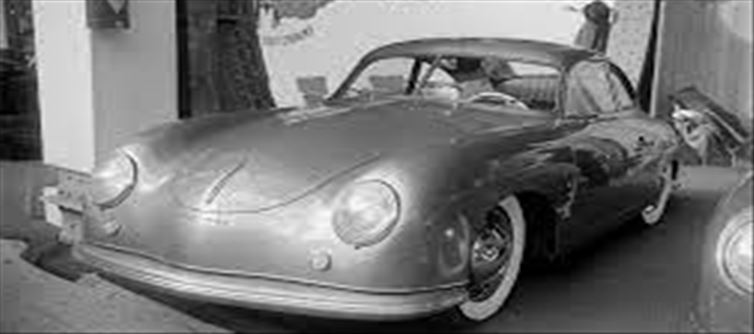Pushpa Telugu Movie Review, Rating
పుష్ప తెలుగు సినిమా రివ్యూ ,రేటింగ్
-
10 Years. 24,679 Crores Requested by Tamil Nadu. 4,136 Crore Received. This Is Not Federalism — It’s Punishment.
-
Coimbatore Airport Just Leveled Up — And This Is the Upgrade Tamil Nadu Has Been Waiting For
-
How a Single Speech Exposed Vijay’s Politics as Script-Reading Without Homework
-
Putin Dropped a Truth Bomb on India’s Language Politics — And It’s Devastating
-
Bridal Beauty Prep: Expert Tips for a Luminous Wedding Day Look
-
Is Your Screen Routine Ruining Your Vision?
-
Shah Claims Congress Opposed Rajiv Gandhi’s EVMs, Criticizes Post-2014 Ranting
-
"Rahul Gandhi Responds to Amit Shah on SIR Allegations"
-
Diljit Dosanjh’s Role in Border 2 Events Unconfirmed
-
Kangana Ranaut Slams Congress, Recalls Indira Gandhi vs. Raj Narain Case
-
Year Ender 2025: The Biggest Bollywood Actor of the Year..!
-
Arjun Rampal Breaks Silence on Dhurandhar’s 26/11 Scene
-
Kapil Sharma Reveals TGIKS S4 ..
-
SC Concludes Hearing in 2020 Delhi Riots Case; Will Umar Khalid and Sharjeel Imam Get Bail?
-
Jackie Shroff Pays Tribute to Ashok Kumar ..
-
Kritika Kamra Confirms Relationship with Gaurav Kapur ..?
-
Dhurandhar Movie Download and Box Office Performance ..!
-
From Ramayana to Spirit: Big-Budget Films Set to Create Worldwide Buzz – Release Dates Inside
-
Rajinikanth Reveals Interesting Facts About ‘Padayappa’
-
"Neelam Kothari Criticizes Etihad Airways Over Emergency Care"
-
Dhurandhar Roars Again, 'Tere Ishq Mein' Struggles at Box Office"
-
Suhana Khan Takes on Action Role in King, with Shahrukh Khan as Her Trainer
-
Rashmika’s Travel Diary Is So Serene It Should Come With a Trigger Warning
-
Netflix Won the Warner Bros Fight But Paramount Just Declared War
-
Predator: Badlands Made History — $180 Million and Still Not a Success?
-
Actress Dating a Divorcee With Two Kids? Internet MELTS After Reveal
-
Kiara Advani Drops One Photo. The Internet Loses Its Mind.
-
Millie Bobby Brown Just Broke the Internet — Stranger Things 5 Is Silent But Millie Is Not
-
Who Is Bandana Girl? How a 2-Second Clip Broke the Internet and What She Did The Amount She Earned On X?
-
Pooja Hegde Just Froze Instagram — And Melted Every Heart in the Process
-
AVENGERS: DOOMSDAY Trailer Incoming — Marvel Is About to Drop Its Biggest Trailer Since ENDGAME
-
Daisy Ridley Backs The Fan Movement Trying to Revive a Film Disney Never Wanted You to Know About.
-
Séx-for-Rent Exploitation Explodes — And These Countries Are Failing Their Most Vulnerable
-
Thoothukudi: The District Everyone Forgets — Until They Need Salt on Their Plate.
-
McDonald’s, KFC, Pizza Hut to Take Over Stations — But Who’s Fixing the Tracks?
-
India’s Dark Habit: Fixing Problems Only After Bodies Fall.
-
Under 16? No X. No Facebook. No Insta. No Scroll. Australia Drops the Mother of All Bans.
-
Vijay Praised the Govt That Just Shrunk His Rally — Is Vijay Really Aware Of What's Happening Around Him?
-
The Rupee Is Sinking — And the RBI Is Running a Secret, High-Stakes Operation to Keep It From Drowning.
-
Kashi’s New Cricket Stadium Uses Trishul Lights — Netizens Respond With Divine Levels of Sarcasm.
-
China Hangs Corrupt Officials — But in India, They Get BJP's Magic Wash
-
25 Years Later Padayappa STILL Eats, Leaves No Crumbs, and Walks Away.
-
The Plot Twists. The Bloodlines. The Nightmares. The Romances. THESE Were the 10 Shows That Owned 2025.
-
India in 'Reform Express' Phase, Says PM Modi
-
Understanding DGCA, Airport Authority of India, and BCAS: Roles, Functions, and Differences
-
New Labour Code: How It Affects Your Take-Home Salary & PF Deductions – Complete Rules Explained
-
Oriental Insurance Company Limited Recruitment 2025: Apply Soon for Administrative Officer Positions
-
8th Pay Commission: Will Salaries Increase from Next Month? Government Clarifies
-
Bihar Government Launches Civil Services Incentive Scheme for Female Candidates: ₹50,000 Incentive Available
-
Indian Railways RRB JE Recruitment 2025: Last Chance to Apply for 2,600 Junior Engineer Posts
-
Hotel Booking Scams on the Rise: How Scammers Trap People Online
-
Uttar Pradesh Government’s Kanya Sumangala Yojana: A Financial Lifeline for Daughters from Birth to Schooling
-
How to Obtain Passes for the 26th January Parade: The Easiest Way to Book Tickets
-
Nivetha Pethuraj Deletes Her Engagement Pics Overnight — Breakup ALERT !!?!
-
Rashmika's ‘Thamma’ Finally Streams for Free — Here’s When to Hit Play!
-
RTI BOMBSHELL: Did BJP Raise Party Funds by Masquerading as Government Schemes?
-
Sky-High Privilege for Politicians, Grounded Misery for People — Who Really Pays the Price?
Empowering 140+ Indians within and abroad with entertainment, infotainment, credible, independent, issue based journalism oriented latest updates on politics, movies.
India Herald Group of Publishers P LIMITED is MediaTech division of prestigious Kotii Group of Technological Ventures R&D P LIMITED, Which is core purposed to be empowering 760+ crore people across 230+ countries of this wonderful world.
India Herald Group of Publishers P LIMITED is New Generation Online Media Group, which brings wealthy knowledge of information from PRINT media and Candid yet Fluid presentation from electronic media together into digital media space for our users.
With the help of dedicated journalists team of about 450+ years experience; India Herald Group of Publishers Private LIMITED is the first and only true digital online publishing media groups to have such a dedicated team. Dream of empowering over 1300 million Indians across the world to stay connected with their mother land [from Web, Phone, Tablet and other Smart devices] multiplies India Herald Group of Publishers Private LIMITED team energy to bring the best into all our media initiatives such as https://www.indiaherald.com





 click and follow Indiaherald WhatsApp channel
click and follow Indiaherald WhatsApp channel